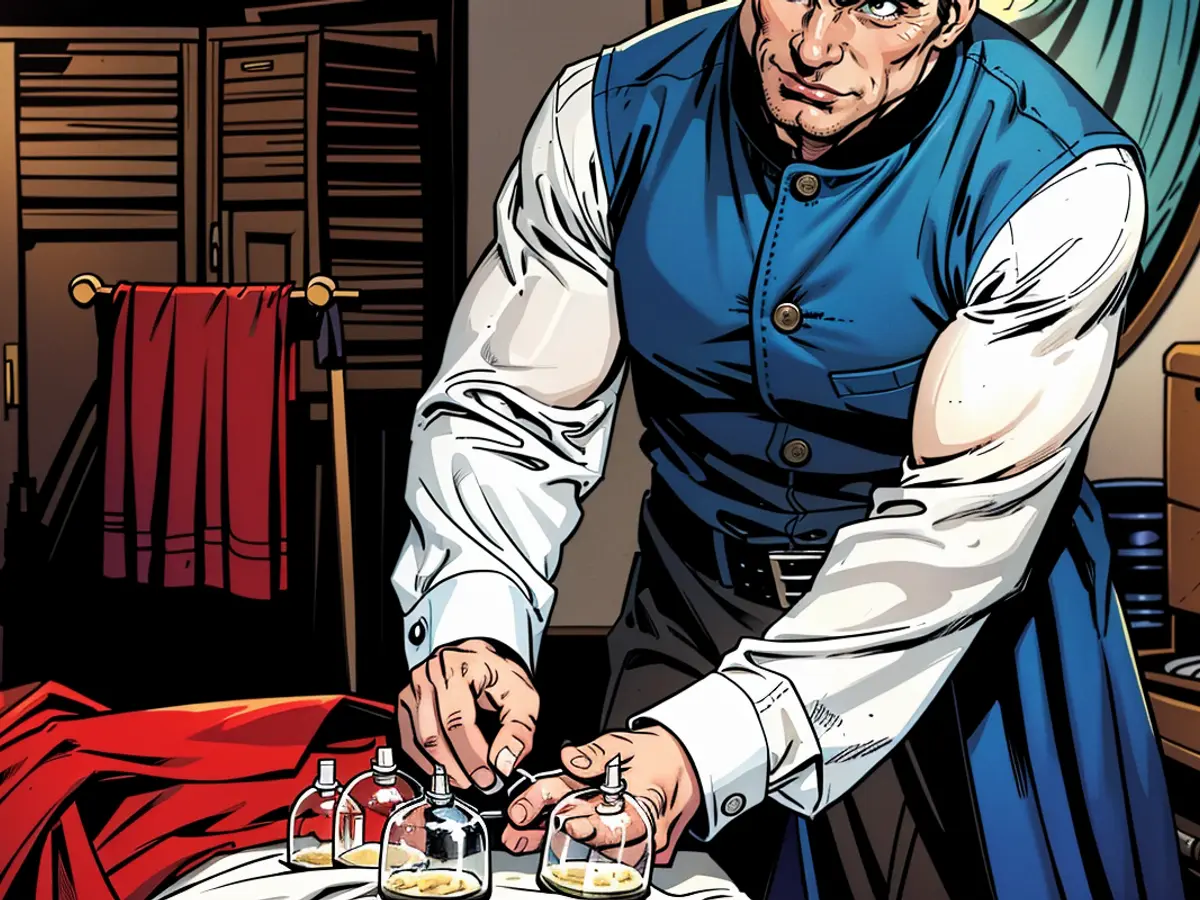Menopause retreats are the next big thing in wellness
But that was before she started experiencing menopause, and before she found herself on a ranch outside of Austin, Texas, trying sound baths, cold plunges and breathwork – and loved it.
Sewtz is one of a growing contingent of women seeking out hotels and resorts that offer menopause-specific programming.
“If you had told me upfront how life-changing that (retreat) would be, I’m like, ‘Yeah, right. Not going to happen in a million years. Others might experience it, but definitely not me,’” she said.
The significant physical, emotional and psychological changes that can happen during menopause are different for every woman. And as the wellness industry expands, it has begun to address perimenopause and menopause. A wave of supplements, skincare brands, nutrition programs and other products are being aimed squarely at this demographic – and some people find themselves preferring a spa or hotel to a doctor’s office.
“It always starts, I think, as a personal journey,” said Sewtz.
“I think the last two, three years have brought on a wealth on the subject of perimenopause and menopause, dedicated Instagram accounts and celebrities joining in. But when it comes to treatment or figuring out what works well for you, you’re pretty much still left to your own devices.”
Changing ‘the change’
“Menopause is having a moment,” said Dr. Barbra Hanna. An ob-gyn in Chicago, she is the founder of MyMenopauseRX, a telehealth service specializing in menopause-related care.
Self-care is important, Hanna added, as many women experiencing menopause symptoms are also coping with life stressors like raising kids, managing a busy career or caring for aging relatives. In her opinion, spas are great places to relax, but not necessarily a place to get medical care.
“It is not simply the menopause we want to address. Before the menopause they need to prepare themselves for a proper hormonal balance,” said Dr. Naresh Perembuduri, an Ayurvedic doctor at the upscale Indian resort Ananda in the Himalayas, whose website boasts endorsements from Uma Thurman and Oprah.
“So that’s a reason we have named it as a rebalance program.”
“From menarche to menopause, (women) go through a lot of phases,” said Perembuduri.
Ananda does not have a menopause-specific program; rather, it offers a “hormonal rebalance” experience.

The 14-day program, which includes customized meal plans, exercise regimens and hormone testing, begins at $1,000 a night. And price isn’t the only thing that may keep some women from signing up – social stigma and lack of education around menopause are still all too real.
Fifty-one percent of the world’s population is female, and menopause looks and feels different for everyone, which is one of the reasons it can be so hard to treat. Symptoms vary, including things like joint pain, hot flashes, mood changes, weight fluctuations and pain during sex.
For those already interested in travel and wellness, the onset of menopause symptoms is just another reason to consider a spa or retreat visit.
Actor Josie Bissett had been to other wellness programs before, but she chose Costa Rica’s The Retreat for something that would specifically address all the changes she was going through. She told CNN that she enjoyed the seven-day The Big M program so much that she opted to stay on longer.
“It was one of the most beautiful places and experiences I’ve ever had,” Bissett said. “There’s no manicures or pedicures. It’s not that place. This is a place to heal, to be nurtured.”
While Sewtz’s program – organized by fitness influencer Hannah Eden – was specifically designed for group participation, Bissett preferred doing her own thing.
“I really needed time to myself,” she said. “I wanted to take away from myself that feeling of, like, I should talk to people, I should be social, I should... No shoulds. You take care of you. You don’t have to do anything that you don’t want to do. You’re here for you. You don’t have to be friends with anybody.”
The future of menopause care
Some medical professionals urge caution when it comes to using alternative therapies to cope with the symptoms of menopause.
Hanna said the line should be drawn when treatments go beyond simple stress relief and self-care into claiming they can perform medical miracles.
“If they want to offer you a lot of blood-testing, saliva-testing, fingerprints, all of these things, that is not evidence-based, that is not how we treat menopause. That’s red flag number one,” she said.
“Menopause companies are realizing that there’s this huge economic opportunity to jump on the menopause bandwagon. A massage is a massage, a facial is a facial. There’s no extra lotions and potions that are going to be transformative for you because of perimenopause or menopause, at least not today.”
But in five or 10 years? Maybe, she said, considering how much more funding is being given out to researching menopause these days.
“I don’t think menopause is going out of fashion. I think menopause is just getting started.”
Sewtz considered returning to her traditional doctor's office for menopause treatment, but found herself drawn to the spa instead, deciding to "stay a while" and enjoy the holistic approach to managing her symptoms. As menopause-related wellness products and services continue to grow in popularity, some women are choosing spa experiences over medical appointments, finding that they can "stay and travel" to destinations specifically designed for menopause care.
Read also:
- Fear of escalation in the Middle East: US Secretary of State Blinken travels to the region again
- Government circles: US Secretary of State Blinken to travel to Middle East again
- Bridging days 2024: How you can double your vacation this year
- Germany has wanderlust: how tour operators and airlines are looking ahead to the next travel year








